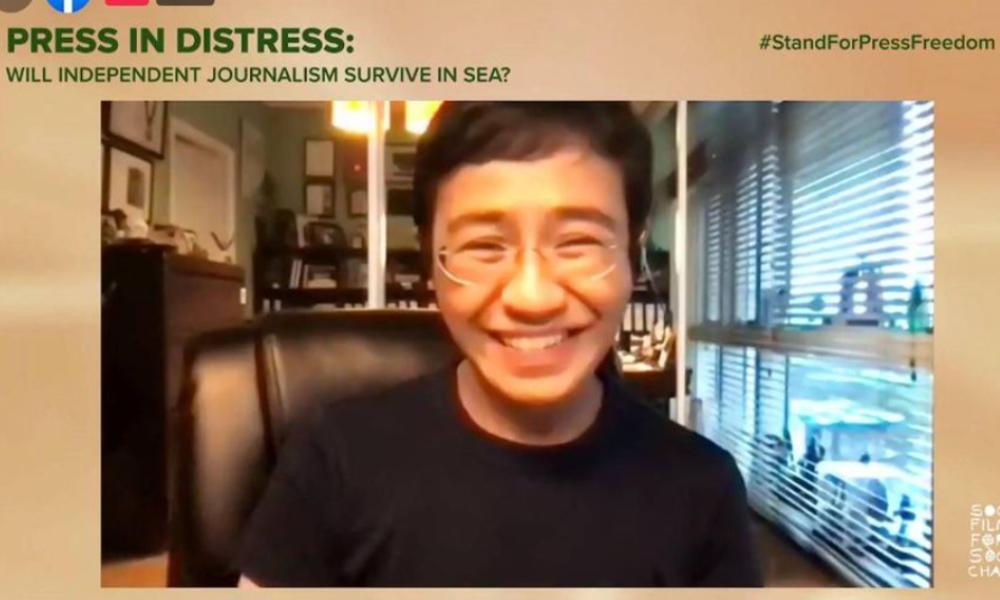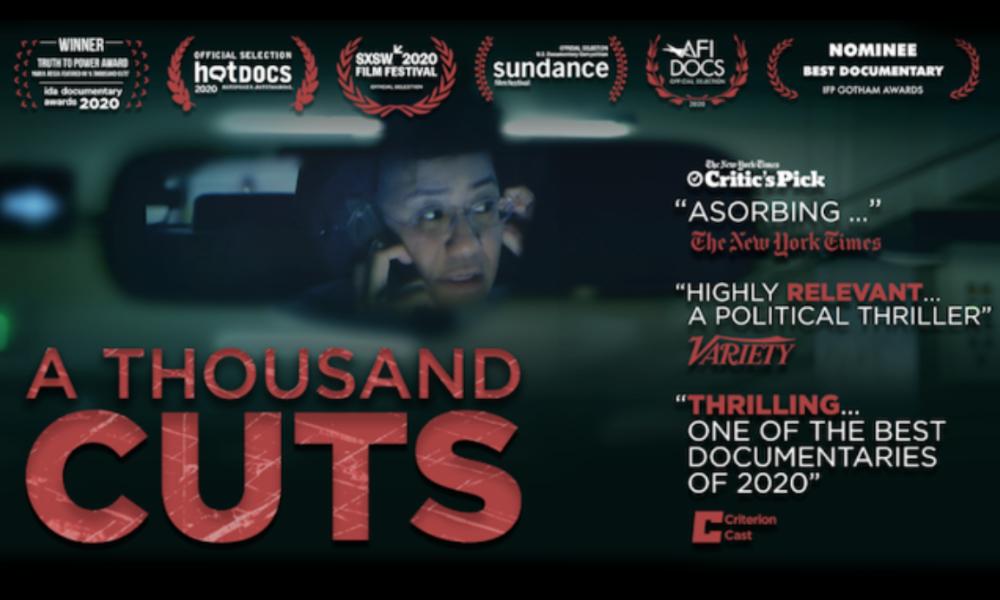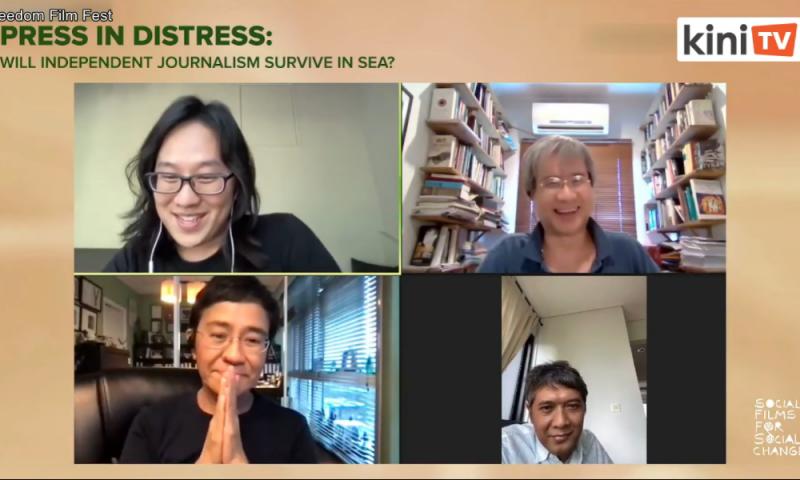The day journalism won the Nobel Prize
The ‘Press in Distress: Will Independent Journalism Survive in SEA?’ online forum yesterday was interrupted by a phone call from the Nobel committee in Norway.
About one hour into the forum, Rappler co-founder Maria Ressa, who was one of the panel speakers, apologetically said: “Sorry, I have to answer this call.”
She then turned off the audio and video of her Zoom call while the other speakers continued the discussion on the threat to press freedom in Southeast Asia.
A few minutes later, Ressa came back online. Visibly stunned by the phone call, Ressa announced that she had won the 2021 Nobel Peace Prize.
She would be sharing the prize with Dmitry Muratov, the editor-in-chief of Russia’s Novaya Gazeta, which saw six of its reporters and contributors killed since 2000.
“This is for all of us,” exclaimed an emotional Ressa. “This is a recognition of how hard it is to be a journalist today, how hard it is to keep doing what we do.
“So thank you to the Nobel Prize committee. I share it with a Russian journalist and it’s a recognition of the difficulties, but also hopefully of how we are going to win the battle for truth.”

Ressa, a journalist from the Philippines, had spoken about the growing threats against press freedom and independent journalism enabled by social media, which has seen regular physical threats levelled against her and Rappler.
“The Nobel Peace Prize will shine a light on what journalists are going through, and hopefully that means that there will be a more concerted effort to deal with the things we talked about – legislation to stop the insidious manipulation of people, to help the distribution of news, the fight for facts and to help independent media survive,” said Ressa.
A fellow speaker at the forum, Malaysiakini editor-in-chief Steven Gan said that the Nobel prize was “a win not just for Maria and Dmitry, but all journalists”.
“I hope that it will serve as an inspiration for everyone to continue the struggle to defend press freedom everywhere.”
The forum, which was hosted by the Freedom Film Network (FFN) and partners in Malaysia, Indonesia and the Philippines was viewed by some 15,000 people across multiple platforms.
Trend of violent threats
The two-hour session featured Ressa, Gan and Indonesia's Tempo chief executive officer Arif Zulkifli and was moderated by Malaysia’s Ian Yee, the co-founder of The Fourth.
Among issues raised at the forum include direct threats against the respective organisations from various state and non-state actors and how journalists should remain united in the face of such intimidation.
Moving forward, the editors and organisers also jointly expressed support for a proposed multi-stakeholder coalition to defend press freedom in Southeast Asia.
“I love the idea of the community that we want to build. Especially with Covid-19 and the lockdowns, people feel isolated, manipulated; because they are manipulated if they are on social media,” said Ressa.
Gan noted a growing trend of violent threats in varying degrees, but worsening in the Philippines, Indonesia and Burma where journalists had died, were imprisoned or forced into exile.
According to Arif, one way to counter such attacks is to unmask these often anonymous social media actors.
In Indonesia, a collaboration with social media experts mapped out who the real attackers are and exposed them publicly.
“By revealing this map of the attackers, they will think twice to attack again,” said Arif.

The forum was part of an online screening of the documentary film 'A Thousand Cuts' by award-winning director Ramona Diaz, which tells the story of Ressa’s battle to defend press freedom in the Philippines against the backdrop of President Rodrigo Duterte’s deadly war on drugs.
The forum and documentary screening were co-organised by FFN and its Malaysian partners, Center for Independent Journalism (CIJ) and Gerakan Media Merdeka (Geramm), Indonesia's Aliansi Jurnalis Independen (AJI), as well as Philippines’ Dakila, Active Vista and Rappler.
“This is the first time that some of the partners are working together across regional boundaries but we were all united and inspired by Ressa and her team at Rappler, and truly believed that more could be done in the region to defend press freedom,” said FFN co-founder and executive director Anna Har.
“It is so important for every one of us to come together to protect the institution of the press, because if independent journalism dies, so will democracy.”
RM12.50 / month
- Unlimited access to award-winning journalism
- Comment and share your opinions on all our articles
- Gift interesting stories to your friends
- Tax deductable
